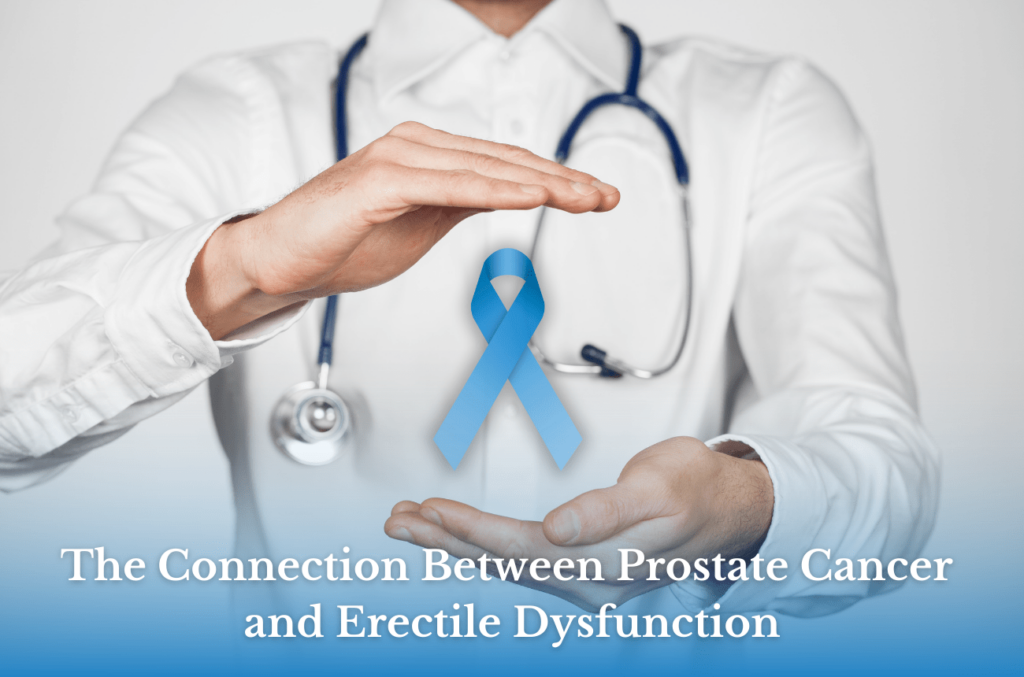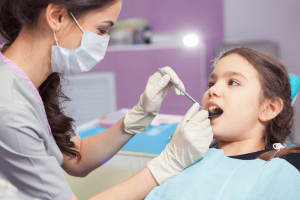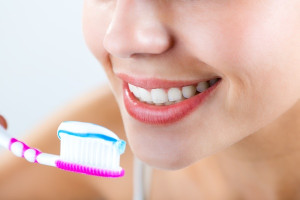
A kind of cancer called prostate cancer develops in the prostate gland, which is found in males below the bladder and in front of the rectum. It is one of the most common types of cancer that affects men, with an estimated 1 in 9 men being diagnosed with prostate cancer during their lifetime. While prostate cancer can be a serious and life-threatening condition, the good news is that it is often treatable, especially if it is detected early. Unfortunately, the way you feel about yourself sexually, your libido (the desire to have sex), your capacity to have an erection, your fertility, the way your body appears, and your relationships with your partner can all be impacted by prostate cancer treatments.
So, one of the potential side effects of prostate cancer treatment is erectile dysfunction (ED), which is the inability to achieve or maintain an erection sufficient for sexual activity. ED can be a distressing and frustrating condition, and it can have a significant impact on a man’s quality of life and his relationships. In this article, we will explore the link between prostate cancer and ED, and discuss some of the treatment options that are available.
What Causes Erectile Dysfunction After Prostate Cancer Treatment?
A lot of men suffer from ED caused by prostate cancer treatments. There are several factors that can contribute to ED in men who have undergone prostate cancer treatment. These include:
- Surgery – Surgery to remove the prostate gland (prostatectomy) can damage the nerves and blood vessels that are responsible for producing and maintaining an erection. This can result in ED, which may be temporary or permanent, depending on the extent of the nerve damage.
- Radiation Therapy – There are three types for radiation therapy for prostate cancer. Such as, external beam radiotherapy, permanent seed brachytherapy and high dose rate brachytherapy. Radiation is sent from outside the body to the prostate during external beam radiotherapy. In permanent seed brachytherapy tiny radioactive seeds are put inside the prostate and left there permanently. And in high dose rate brachytherapy thin tubes are inserted into the prostate during radiation therapy. The tubes are removed after being exposed to radiation for a short period of time to kill the cancer cells. All these radiation therapy treatments can damage the nerves and blood vessels that are involved in erections. The extent of the damage depends on the dose and duration of the radiation therapy.
- Hormone Therapy – Hormone therapy is often used to treat prostate cancer, and it works by reducing the level of testosterone in the body. Hormone therapy prevents the growth of cancer cells by preventing the hormone testosterone from reaching cancer cells. It can be administered surgically, orally, or by injection. Testosterone is an important hormone that is involved in sexual function, and reducing its levels can lead to ED.
- Psychological Factors – ED can also be caused by psychological factors such as stress, anxiety, depression, or relationship problems. These factors can be particularly relevant for men with prostate cancer, who may be dealing with the stress of a cancer diagnosis and the impact of treatment on their quality of life.
ED Treatments after Prostate Cancer Treatment
Fortunately, there are several Erectile Dysfunction treatment options available after prostate cancer surgery or other treatments. These include:
- Oral Medications – Oral medications such as sildenafil (Viagra), tadalafil (Cialis), and vardenafil (Levitra) are often prescribed to treat ED. These drugs function by boosting blood flow to the penis, which may enhance erections. However, they may not be effective in all cases, and they can have side effects such as headache, flushing, and nausea.
- Penile Injections – Penile injections, which involve injecting medication directly into the penis, can also be effective in beating Erectile Dysfunction. This treatment is often used when oral medications are not effective or are not recommended. However, injections can be painful, and they require some skill and training to administer.
- Vacuum Erection Devices – Vacuum erection devices (VEDs) are mechanical devices that use suction to draw blood into the penis, which can help to produce an erection. Vacuum pumps for ED are non-invasive and can be used in combination with other treatments such as oral medications or penile injections.
- Penile Implants – For men with severe ED that is not responsive to other treatments, penile implants may be an option. Penile implants involve surgically placing an inflatable or semi-rigid device in the penis, which can be inflated or deflated as needed to produce an erection. This treatment is effective, but it is more invasive than other options and requires surgery.
- Counseling – Counseling can be helpful for men with ED, particularly if psychological factors are contributing to the condition. Counseling can help men to address underlying issues such as anxiety, depression, or relationship problems, which can in turn improve sexual function.
- Lifestyle Changes – Lifestyle changes such as exercising regularly, eating a healthy diet, and reducing stress can also be helpful for improving erectile function. These changes can help to improve overall health and reduce the risk of ED.
- Shockwave Therapy – Shockwave therapy for prostate cancer survivors who are suffering from ED is a viable treatment option. Shockwave therapy for ED is a non-invasive treatment, that uses low-intensity sound waves to enhance blood flow to the penis. The procedure involves applying low-intensity shockwaves to the penis using a handheld device. This promotes the growth of new blood vessels and improves blood flow to the penis. Also, this increased blood flow might lead to more effective erections and overall sexual performance.
It is important to note that the choice of treatment for ED in men who have undergone prostate cancer treatment will depend on several factors, including the extent of the ED, the underlying cause, and the patient’s overall health and preferences. It is important for men to discuss their treatment options with their healthcare provider and to make an informed decision based on their individual needs and circumstances.
Prevention of ED in Men with Prostate Cancer
While it may not be possible to prevent ED in all cases, there are some steps that men can take to reduce their risk of developing the condition. These include:
- Maintaining a Healthy Lifestyle – Maintaining a healthy lifestyle, including regular exercise, a healthy diet, and stress reduction, can help to reduce the risk of ED.
- Discussing Treatment Options with a Healthcare Provider – It is important for men with prostate cancer to discuss their treatment options with their healthcare provider before starting treatment. This can help to ensure that the treatment plan takes into account the risk of ED and that appropriate steps are taken to minimize the risk. Because same treatments don’t work on every man suffering from ED. As the cause of ED can be different in each man, the treatment options can also be different.
- Considering Penile Rehabilitation – Penile rehabilitation refers to a series of treatments that are designed to improve erectile function after prostate cancer treatment. These treatments may include medications, vacuum erection devices, or other therapies, and they can help to improve the blood flow to the penis and reduce the risk of ED.
- Maintaining Regular Follow-Up Care – Regular follow-up care with a healthcare provider is important for men with prostate cancer, as it can help to detect any potential complications or side effects of treatment early on, including ED.
In conclusion, ED is a potential side effect of prostate cancer treatment that can have a significant impact on a man’s quality of life and relationships. Fortunately, there are several treatment options that are available, including oral medications, penile injections, vacuum erection devices, penile implants, counseling, and lifestyle changes. By working with their healthcare provider and making informed treatment decisions, men with prostate cancer can take steps to reduce their risk of ED and improve their overall quality of life.
For more information on ED or other men’s sexual health issues, check out Shockwave Clinics Ltd, a London based clinic dedicated to men’s health. Shockwave Clinics is the best known for their cutting-edge modern shockwave treatments.



